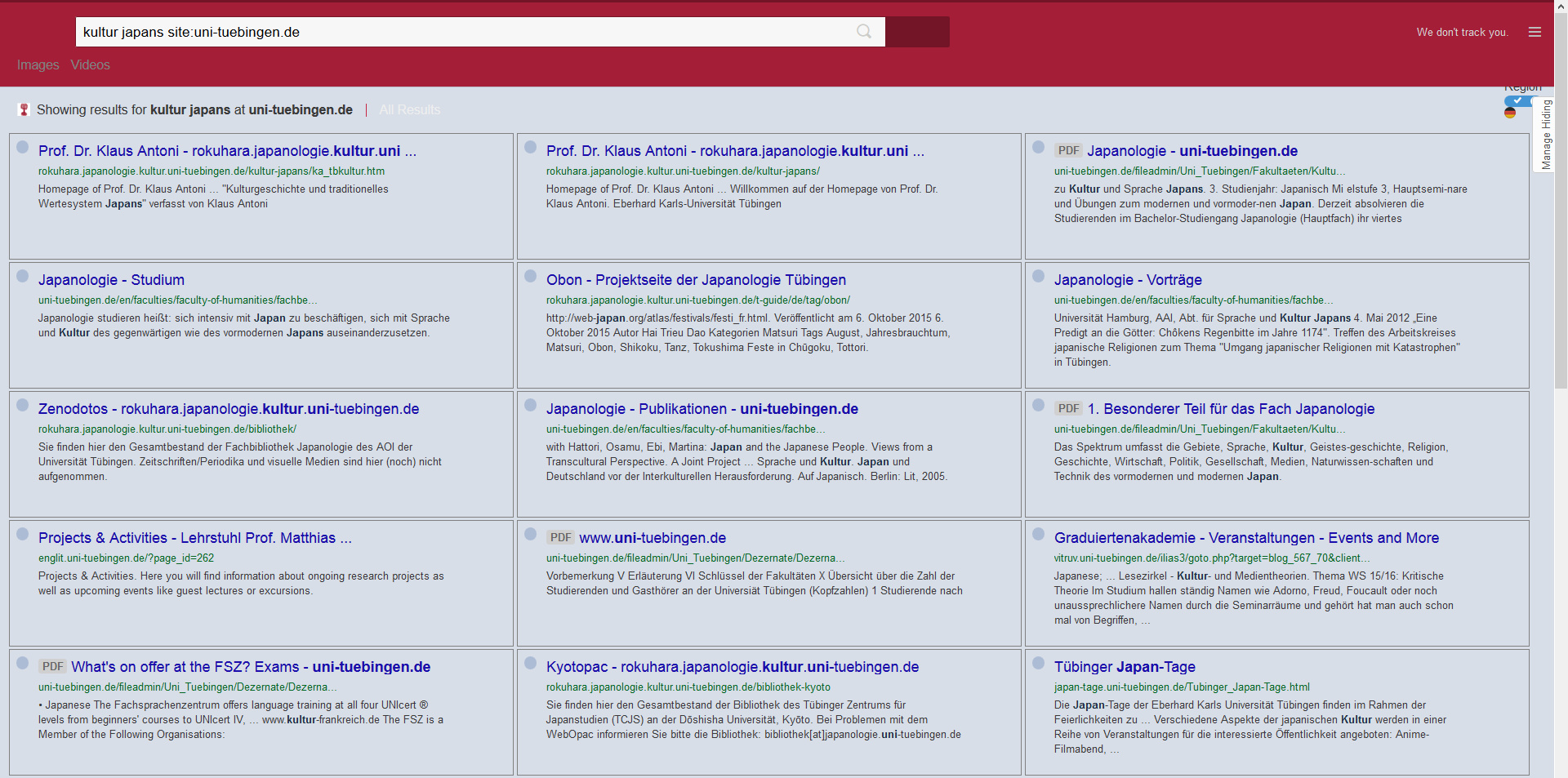DuckDuckGo Search Box now offers the ability to input and search multiple sites in a Custom Search Engine (CSE), something I don’t remember DuckDuckGo offering the last time I looked.
It’s certainly nice to have an alternative option when making a small CSE, and there are various reasons why one might prefer this to Google. DuckDuckGo is a non-tracking and privacy-centric search engine, and use doesn’t require a sign in to DuckDuckGo. DuckDuckGo is excellent on speed, relevancy ranking (especially with its image search) and on general navigational searches. So it may be a preferable choice for some, provided that it indexes all your CSE’s target URLs and doesn’t forcibly truncate (e.g. searching the full www.site.com/ when you only want to search www.site.com/academic-journals/
On the downside, the DuckDuckGo index doesn’t yet have the range and depth of Google Search, especially when it comes to small academic journals and sites of the sort in JURN. But it might be nice to test the coverage of a small DuckDuckGo CSE for a unified search across all the repositories at a university (the main theses repo, the eprints repo, various OJS installations, the law-school repos and journals, etc). Such an engine might conceivably have a deeper coverage of your repositories than Google, and it would only be a matter of thirty minutes to test such a notion.
One would then ideally plug the CSE search-box into the front page of each of those repositories — since I find that one of the problems with the increasing proliferation of repositories and OJS installations, at large universities, is that these are almost never interlinked or used for cross-promotion. One arrives at, say, the eprints server and is not even given a hint that the university also runs another half-dozen repositories and OJS installations.
A DuckDuckGo CSE search box can be embedded on your website via a normal HTML form, but the results are served by and at DuckDuckGo. However, DuckDuckGo has also kindly listed all their DuckDuckGo URL Parameters which can be embedded in the URL path and which one can use to change the CSE’s search results and appearance. These include the ability to turn off advertising.
Here’s a screenshot of my results from a German university which uses their CSE, showing how they’ve keyed the header colours to their own brand — although I do have a browser add-on that presents the search results in a desktop-friendly column layout and probably overrides their own colours on the search links…
Update:
Sadly there are significant drawbacks.
1) It truncates so can’t handle www.site.com/cgi/images/ only www.site.com
2) A test shows that it just doesn’t work at all with the Duck’s Image search feature.
3) Nor can you use it with even a single – modifier (e.g. Staffordshire -dog)
Update: appears to be dead. Just gives the message “Search too long” whatever you put into it.


Pingback: CSEs unlinked | News from JURN.org